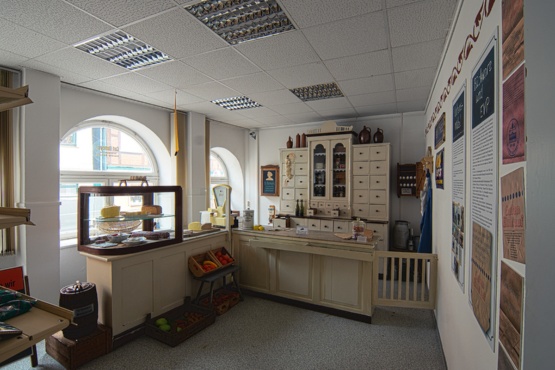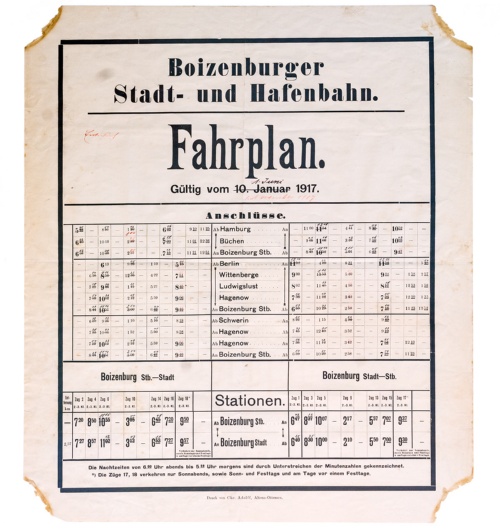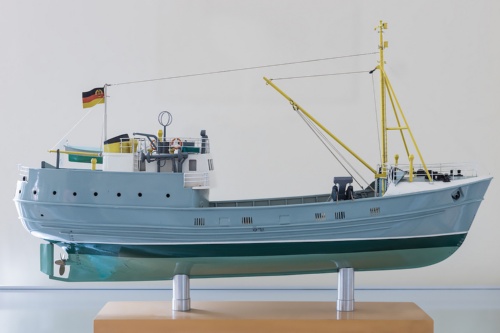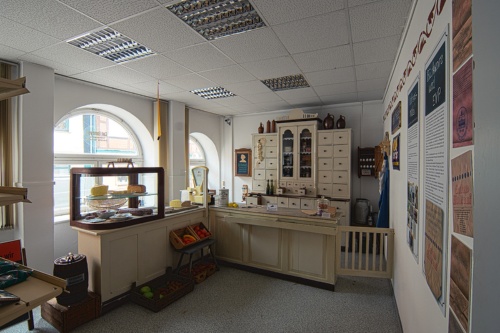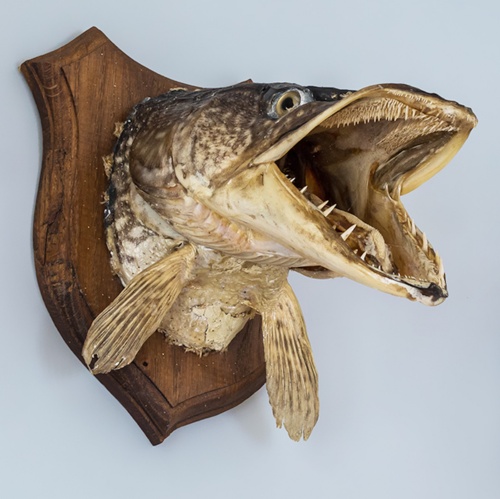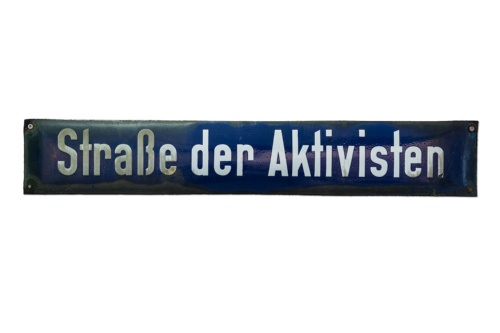Ebmeyer's shop
- Wood, sheet metal
- 1920s
- Length: 5.20 m
- width: 4.10 m
- height: 2.70 m
The shopping street in Boizenburg is called Baustrasse. Its name derives from the inhabitants: so-called "agricultural burghers" who engage in agriculture. Around the turn of the 20th century, a change of use took place: the street was busy with more than 30 commercial and craft businesses, including "Ebmeyer's" shop at number 18. At first, the fishmonger Hugo Stöckmann sold his goods here; as of 1925, the merchant W. Frielitz, who came from Hamburg Altona, sold food and everyday goods there. In 1935, Karl Ebmeyer from Brahlstorf takes over the business. His family runs the small shop for more than 70 years. Most of the historical shop fittings from the 1920s have been preserved.
Karl's daughter and last proprietor, Ruth Ebmeyer, also runs the shop as a private retail business during the GDR era. Thanks to a "commission trade agreement", she benefits from guaranteed commissions and tax relief, but remains legally independent. However, "commission retailers" are bound by fixed prices.
Basic foodstuffs are heavily subsidised in the GDR and uniform consumer prices apply: a bread roll costs 0.05 Marks, a 5 kg bag of potatoes 0.85 Marks. Bottlenecks in the supply of tropical fruits or "Grabower Küsschen" ("chocolate-covered marshmallow kisses") are also part of everyday life. A neighbourhood "corner shop" is a definite advantage: the personal, informal relationship between people means that some get access to rare "baked goods". When Ruth Ebmeyer retires in 2006, the shop closes. Some of the shops fixtures and fittings are on display in the museum.
Text: I. R.
